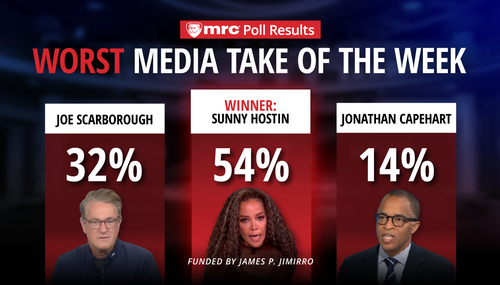Last week the Business & Media Institute released its annual Top 10 list of the worst economic myths the media spread in 2008. The list was broad, ranging from “killer tomatoes,” to the collapse of Fannie Mae and Freddie Mac, to the death of capitalism.
But it was myth number 2 “Welcome to 1929: Great Depression II” that touched a nerve with Cliff Mason, senior writer for Mad Money, because of its criticism of CNBC’s Jim Cramer. By the way, Mason is also Cramer’s nephew according to the disclosure at the end of his bio.
On Dec. 12, Mason wrote:
Superhero economist and top-notch investor John Maynard Keynes famously told one of his critics, "When the facts change, I change my mind. What do you do, sir?"
On Mad Money we happen to share that same philosophy. And unfortunately, it's still something of a radical position.
On Thursday, the Business and Media Institute released its list of "The Media's Top 10 Worst Economic Myths of 2008." Jim is mentioned in three of them, but it's myth number 2, "the news media drew hundreds of parallels to the Depression, despite economic data that is not even close," that reminded me of that Keynes quotation.
Here's the criticism: "CNBC’s 'Mad Money' host Jim Cramer went further than most journalists actually warning that the country was in danger of 'Great Depression, No. 2.' On 'Street Signs' Sept. 11 Cramer excitedly warned that unless the banking system was bailed out, a second Depression could be in the future." Later the author writes, "Ironically in December, Cramer chastised people using Great Depression warnings calling them 'scare tactics.'"
Mason is right to argue that facts can change and opinions should change with them, but that was not my point. I was criticizing Cramer for joining the media chorus of Great Depression comparisons when the economic situation was completely different from the ’30s.
Back in April, Great Depression historian Ben Bernanke said that the economic woes of 2008 were “nothing like Depression,” according to Reuters. Even today's unemployment rate of 6.7 percent cannot compare to the roughly 25 percent unemployment during the Depression.
I was actually pleased when Cramer called such comparisons “scare tactics.” I just wanted him to admit that was exactly what he was doing earlier: spreading fear of a Depression in order to promote government bailouts.



